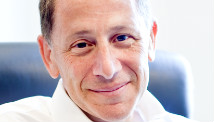SAN BERNARDINO, Calif. Fugitive ex-cop Christopher Dorner apparently killed himself with a gunshot to the head amid a fierce battle with police, law enforcement officials said Friday. He fired his last shot as the cabin he was holed up in was going up in flames.
Police initially weren't sure if Dorner was killed by one of their bullets or by a fire sparked when they launched incendiary tear gas inside. Now they believe he died by his own hand.
"When about a quarter of the cabin was on fire, we heard a distinct single gunshot come from inside the house, which was a much different-sounding shot than what he'd been shooting at us," San Bernardino sheriff's Capt. Kevin Lacy said.

Gun battle with wanted ex-cop - caught on tape
CBS News correspondent Carter Evans was there caught in the crossfire when the gun battle took place on Tuesday. It was so intense that Evans was forced to take cover, but left a cell phone on. At the very beginning of the shootout, one can hear authorities near the phone talking about burning Dorner out of the cabin he was holed up in:
Officer 1: "Burn that (expletive) house down."
Officer 2: "Get going right now."
Officer 1: (expletive) burn that mother(expletive)
After the crack of the distinctive gunshot, investigators only heard ammunition popping in the flames as the cabin burned to the ground. Dorner's body was later found in the basement.
The day after the shootout, McMahon had insisted that authorities did not burn down the cabin on purpose. At Friday's press conference with the sheriff's department, Evans about the officers' remarks during the standoff. "We did not intentionally burn that cab down," said McMahon. "I stand by that remark. They had just been involved in probably one of the most fierce firefights. Sometimes, because we're humans, they say things they may or may not be appropriate."
Police also confirmed that law enforcement had a near miss with Dorner as he hid in a mountain condominium. Dorner is believed to have entered the condo through an unlocked door sometime Feb. 7, soon after he arrived in the resort area of Big Bear Lake after killing three people. He locked the door and hunkered down for six days until the condo's owners came to clean it, San Bernardino County Sheriff John McMahon told reporters Friday.
Deputies knocked on the door that first night but moved on when they found it locked and no sign of a break-in, McMahon said.
"Our deputy knocked on that door and did not get an answer, and in hindsight it's probably a good thing that he did not answer based on his actions before and after that event," the sheriff said of Dorner.

Couple recall encounter with Christopher Dorner
When the owners arrived, he tied them up and fled in their car, leading to a chase, a shootout that killed a sheriff's deputy and, ultimately, Dorner's death in a remote cabin where he barricaded himself for a last stand.
Dorner was equipped with an arsenal of weapons, including assault rifles with flash suppressors that masked the sound of gunfire and the location it was coming from as he fired on the first two deputies to arrive at the cabin, killing Det. Jeremiah MacKay.
"Our officers had not even pulled their guns out at that point and were not prepared to engage anybody and they were ambushed," McMahon said.
The next five responding deputies got into a fierce firefight with bullets whizzing through trees. They deployed smoke bombs to block Dorner's view so they could pull the wounded to safety as other officers provided cover with a hail of bullets, said Capt. Gregg Herbert.
"Every time they tried to move, Dorner was shooting at them," he said. "There was bullets snapping through the trees."
Worried he was lying in wait to ambush them, they eventually used heavy machinery to peel back walls and windows to see if they could see Dorner, who used smoke bombs to obscure their view. They eventually resorted to the tear gas, though McMahon said they didn't intend to start the fire.

Dorner reward money: Will anyone get to claim it?
The search for the former cop began last week after authorities said the former Navy reservist launched a violent revenge campaign against the Los Angeles Police Department for firing him, warning in an angry manifesto on Facebook that he would bring "warfare" to LAPD officers and their families.
Dorner was dismissed for filing a false police report that accused his training officer of kicking a mentally disabled man.
His first victims were Monica Quan and her fiance, Keith Lawrence, both gunned down outside their Orange County condominium Feb. 3. Quan was the daughter of former LAPD Capt. Randal Quan, who Dorner said did not properly defend him before a disciplinary board.
After ambushing and killing Riverside police officer Michael Crain and seriously wounding his partner at a traffic light, Dorner fled to the San Bernardino National Forest, about 80 miles east of Los Angeles. His burned-out truck, with a broken axle was found within walking distance of the Big Bear Lake condo where he hid 100 feet across the street from the command post set up for the manhunt.
1/2













